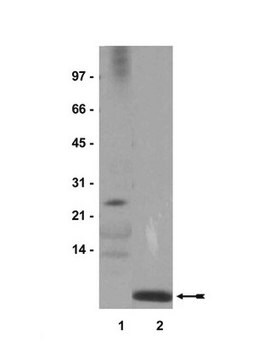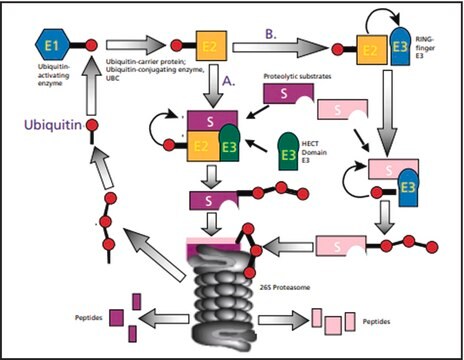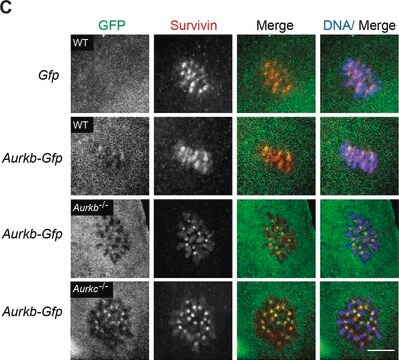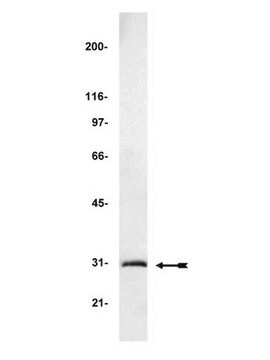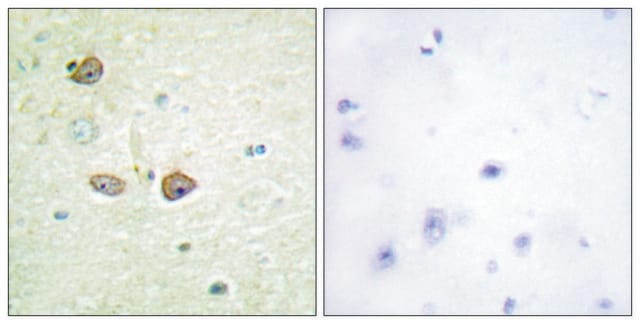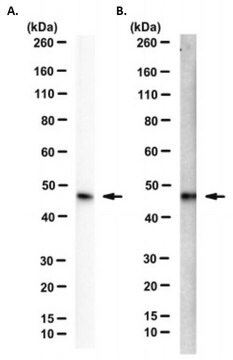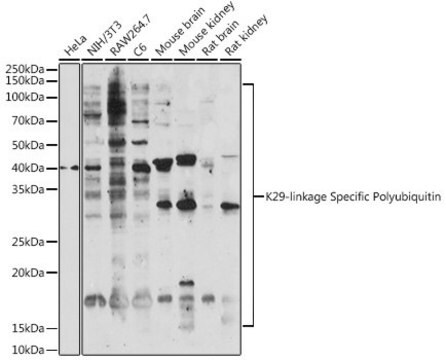MABS1918
Anti-Ubiquitin Lys6 specific Affimer reagent GFP/His tag
About This Item
Prodotti consigliati
Origine biologica
bacterial
Livello qualitativo
Coniugato
unconjugated
Forma dell’anticorpo
purified antibody
Tipo di anticorpo
primary antibodies
Clone
K6_29, recombinant monoclonal
PM
calculated mol wt 8.60 kDa
observed mol wt ~16 kDa
Reattività contro le specie
human
Confezionamento
antibody small pack of 100 μg
tecniche
western blot: suitable
Isotipo
IgG
Condizioni di spedizione
dry ice
Temperatura di conservazione
2-8°C
modifica post-traduzionali bersaglio
unmodified
Descrizione generale
Specificità
Immunogeno
Applicazioni
Evaluated by Western Blotting with Various K-linked di-ubiquitin chains.
Western Blotting Analysis (WB): A 1:1,000 dilution of this Affimer reagent detected di-ubiquitin K6-linkages.
Tested Applications
Western Blotting Analysis: A representative lot of this Affimer detected di-Ubiquitin Lys6. in Western Blotting applications (Michel, M.A., et. al. (2017). Mol Cell. 68(1):233-246).
Note: Actual optimal working dilutions must be determined by end user as specimens, and experimental conditions may vary with the end user
Stato fisico
Stoccaggio e stabilità
Altre note
Esclusione di responsabilità
Non trovi il prodotto giusto?
Prova il nostro Motore di ricerca dei prodotti.
Codice della classe di stoccaggio
12 - Non Combustible Liquids
Classe di pericolosità dell'acqua (WGK)
WGK 2
Punto d’infiammabilità (°F)
Not applicable
Punto d’infiammabilità (°C)
Not applicable
Certificati d'analisi (COA)
Cerca il Certificati d'analisi (COA) digitando il numero di lotto/batch corrispondente. I numeri di lotto o di batch sono stampati sull'etichetta dei prodotti dopo la parola ‘Lotto’ o ‘Batch’.
Possiedi già questo prodotto?
I documenti relativi ai prodotti acquistati recentemente sono disponibili nell’Archivio dei documenti.
Il team dei nostri ricercatori vanta grande esperienza in tutte le aree della ricerca quali Life Science, scienza dei materiali, sintesi chimica, cromatografia, discipline analitiche, ecc..
Contatta l'Assistenza Tecnica.